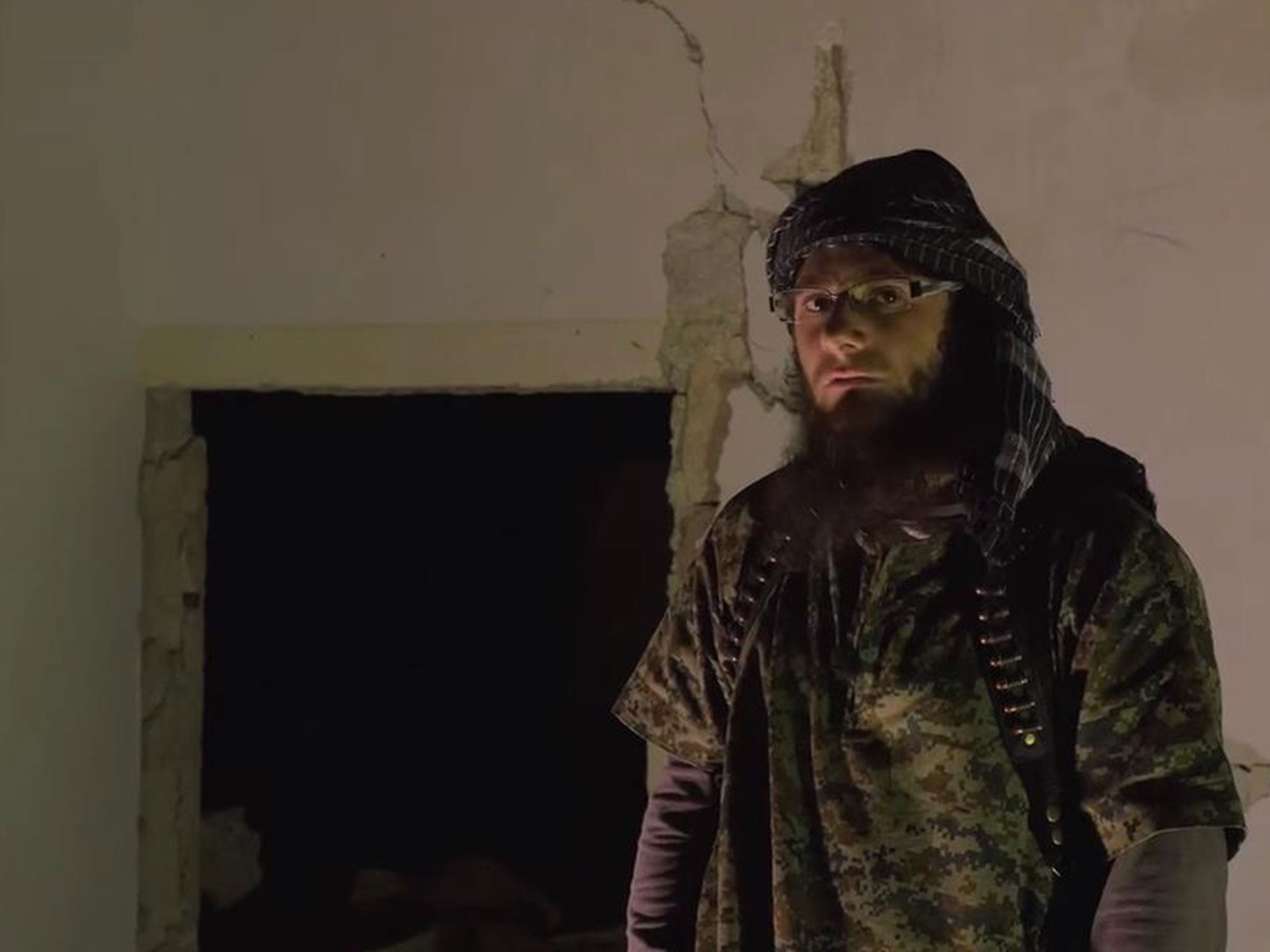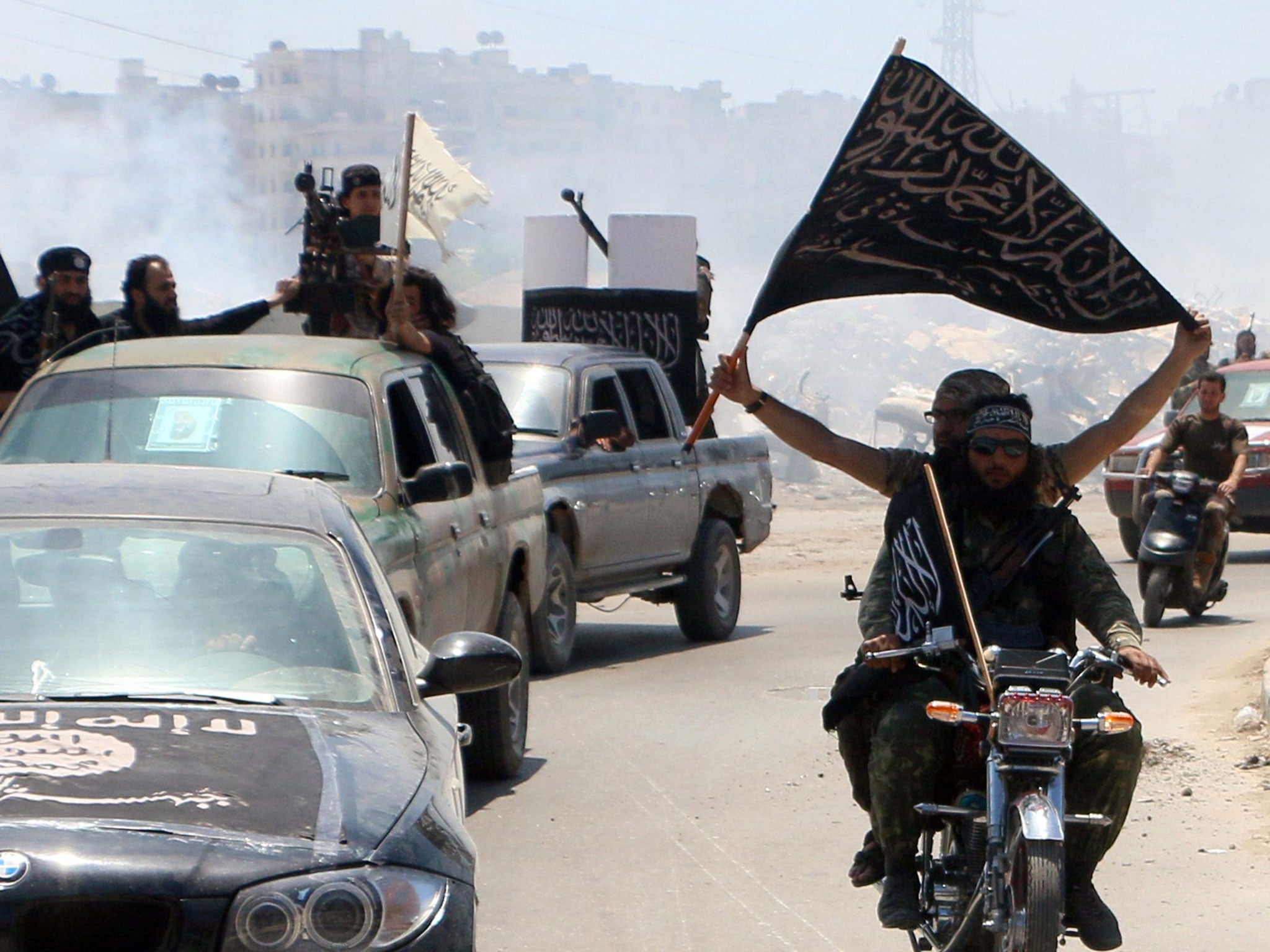British jihadist Lucas Kinney announces 'dream' to become al-Qaeda suicide bomber in Syria
The 26-year-old is the son of a Hollywood assistant film director

A British jihadist has announced his intention to become a suicide bomber in Syria in a documentary exposing a two-year “waiting list” for radicals wanting to blow themselves up.
Lucas Kinney, 26, is the son of Hollywood film-maker Patrick Kinney, who has worked on blockbusters including Braveheart, Twilight and Indiana Jones.
He is among the members of Jabhat al-Nusra, al-Qaeda’s affiliate in Syria, filmed for a Norwegian documentary.
“I’m originally from Britain, I was born in London,” he tells the camera.
“My father is American, my mother English. My dream is to make a martyrdom operation, inshallah (God willing).”
Kinney, who goes by the nom de guerre Abu Basir Al-Britani and has featured in propaganda films, is shown preparing for military operations and discussing “martyrdom” with his fellow fighters.
He is seen smiling as another man tells him he’s being deployed as a suicide bomber in an attack on a hospital allegedly used as a defence post by regime soldiers.
“The physical action is very easy - you go, you drive, you press the button,” Kinney says.
“But how many can actually press the button knowing that you’re departing to the meeting with Allah. This is something very heavy.”
His Syrian wife was pregnant during filming last year and is since believed to have given birth.
Kinney admitted suicide bombing was not an “easy subject” after receiving news that he would be a father, but believed his choice was being “tested by Allah”.
The documentary, called Dugma: The Button, was made by Pal Refsdal and explores the motivations and doubts of suicide bombers as they prepare to die.
He spent six weeks embedded with Jabhat al-Nusra for filming, telling the AFP news agency the terrorist group uses suicide bombers far less than its rival Isis.
“Several weeks can go by in between two operations,” Mr Refsdal said.
“They're not like Isis, which they are also fighting which sends car bombs one after the other with very young drivers dying en masse.”
The journalist converted to Islam while being held by Afghanistan's Taliban in 2009, The Local reported, and said his film was not “trying to tell people what to think”.

His documentary is due to air on Norwegian television in early March.
At least 700 British men and women are believed to have travelled to join Isis, Jabhat al-Nursra and other extremist organisations in Syria and Iraq.
Several of those are known to have been used as suicide bombers, including 20-year-old Fatlum Shakalu, known as Abu Musa al-Britani, who killed himself during Isis’ assault on Ramadi in May.
A report released yesterday by the Conflict Armament Research (CAR) group revealed the extent of the so-called Islamic State’s manufacture of improvised explosive devices using civilian equipment from around the world.
James Bevan, executive director of CAR said the group was continually experimenting, refining and creating new types of IEDs ranging from suicide and car bombs to landmines, booby traps and improvised mortars.
“It’s on a larger scale than we’ve seen in recent conflicts,” he added.
Join our commenting forum
Join thought-provoking conversations, follow other Independent readers and see their replies
Comments